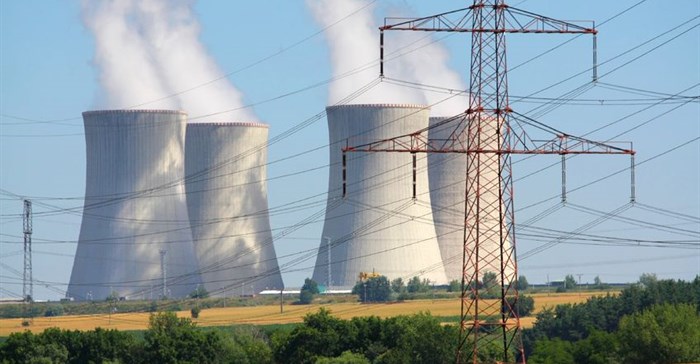
This process is being driven by a high-level cabinet committee to oversee the process, while key institutions will need to restructure in line with government's ambitions. The programme seeks to drive the economic growth of the country, increase production output leading to increased exports of value added manufacturing products. Secondly, to improve South Africa's business outlook and broaden economic participation by promoting small, medium and micro enterprises and co-operatives.
The programme further also seeks to provide quality and sustainable jobs and localisation of skills through the transfer of foreign technology as well as skills development. The above all will directly contribute towards the South African National Development Plan's (NDP) key objectives of addressing inequality, poverty alleviation and unemployment.
Why is all of this important in the context of South Africa? Since the financial crisis in 2008, South Africa's economic growth has slowed considerably; it grew by a mere 3% in 2013 and less than 2.5% in the second quarter of 2015. This is a snail's pace when compared with other emerging markets; by way of example, East Africa's current growth rate is 5.6%. This high growth rate can largely be attributed to infrastructure developments in the region.
Subsequently, South Africa's unemployment rate has also ascended to a very undesirable 25%, with the lack of job opportunities seen as the biggest distress among the majority of young South Africans.
The combination of these factors have, to some extent, had direct and negative effect on the country's crime rate. The lack of meaningful employment and disruptions in service delivery to townships, where the poor black masses live have sparked violent protests. The youth across the country are becoming more and more agitated by the current economic situation and are resorting to illegal activities to feed their families and in some cases vent their frustrations.
The concern is that, unless solutions are found and implemented urgently, a situation where young people who are aggravated, jobless and in despair could lead to undesirable consequences in the future.
The nuclear plans have brought to the surface many questions from within and outside of South Africa about the affordability of the project and different funding models available, as to not put unwanted strain on the fiscus. It is believed and expected that all these questions must be addressed by government if the integrity of the nuclear planning process is to be protected.
The more pressing questions which needs our very serious attention is how will government address the country's growing energy demands which will also be fuelled by government's ambitious economic development plans if direct and important role players don't see a need for a considerable investment in energy to meet demands and replace ageing existing coal-fired plants.
The ambitious plans to stimulate the economy are outlined for example in Vision 2030, the NDP of the National Planning Commission; according to which the government intends to spend about R4 trillion during the next 15 years on infrastructure development. Realising development goals of this magnitude would further strain our already scarce energy resources. Eskom's new coal-fired power stations, Medupi and Kusile, are simply not sufficient to provide the required baseload electricity needed.
The often spoken about NDP offers a long-term perspective. It defines a desired destination and identifies the role different sectors of society need to play in reaching that destination. The effective implementation of the plan depends on our ability to build unity in action through the following principles: broad ownership, continuous capacity building, policy consistency, prioritisation and sequencing, clarity of responsibility and accountability, coordinated action and most importantly, continuous learning and improvement.
There is a national shortage of electricity supply in the country which everyone, including our energy experts, are well aware of. This shortage has arisen from ageing energy infrastructure, a rapidly expanding population and ambitious socio-economic development programmes. What then should government invest in to enable its socio-economic development programme to succeed and reduce the growing unemployment rate amongst the youth of our country?
Although I am in no way opposed to renewable energy, I am realistic and therefore understand that the technology has its limitations, such as intermittency issues and a lack of economically viable storage. Renewables simply cannot provide the baseload that is needed to run heavy industry, such as mills, refineries, factories and so on, which are so desperately needed to boost our economy.
Hospitals and medical clinics are also prime examples of where baseload power is mandatory. For sure, renewables can play a significant role in certain application which could also compliment baseload power generation.
What socio-economic spin-offs can be derived from the nuclear new build programme in order to offset this considerable investment? How much of this investment would be spent locally through local business participation? More pressing questions should be directed to all sectors currently in dire need for growth especially the financial sector, manufacturing, steel, construction and business in general to assess their investment contribution which should retain some of this considerable investment locally.
They should be engaging government rigorously and enquire how much they can contribute to ensure maximised benefits from this programme. They should be providing a leading role to indicate that collectively they could invest so much to illustrate their capacity in the build programme, because a significant portion of a nuclear new build programme can stay in the country.
The net economic output impact from the nuclear energy programme will be reciprocal in beneficiating the country in terms of manufacturing, construction, professional, scientific, technical services, retail trade, real estate, rental and leasing, health care, social development assistance, finance and insurance, mining, wholesale trade, cleaning services, security services, transport, education and skills development, agriculture, water supply, industrialisation and localisation and others.
The investment will mostly influence the employment sector in construction, manufacturing, small, medium and micro enterprises, business and financial occupations. As with the economic impact output, the job creation impact occurs mostly indirectly; not as employment within the nuclear itself, but as enhanced employment in the other sectors primarily caused by the economic effect of lower electricity prices.
If the programme has the potential to cost up to a trillion, which has widely been reported in media, a number I must add I am very sceptical about. Surely local participants from the construction, manufacturing, steel and general service provision should be closely engaging government to set a
minimum level of local content which would help reach government's ambitious targets.
In terms of education, how will this massive programme, which will require thousands of skilled labourers, contribute to the country's economic capacity? It would be no surprise to me that thousands of young people around the country will benefit directly from the comprehensive skills development strategy around the programme. There are already graduates who have and are still benefiting by studying abroad through initiatives resulting from inter-governmental agreements.
I understand that in the initial phase it will afford them the opportunity to study abroad, providing them with the skills needed to compete on a global scale. The demand will further ignite the establishment of more institutions of higher learning which will assist the more than 300,000 high school graduates currently not catered for by tertiary institutions.
The development of more trainers, educators and lecturers to equip our young people to drive the nuclear and other related sectors will be highly beneficial not only to the country, but also to the SADC region and the continent as a whole. There are no limits to what this programme could do for our young people and may very well assist in alleviating some of the ills within the society.
In terms of other social benefits, a lot can be drawn out from surplus heat generation from a nuclear power station to drive desalination of sea water projects to provide much needed clean water to most affected areas along the coast such as the City of Cape Town, Nelson Mandela Bay Metropolitan, not excluding KwaZulu-Natal. These benefits from nuclear energy will definitely have a ripple effect other most important and needed sources to life.
These, in my mind, are the sort of questions that deserves our serious and urgent attention.
